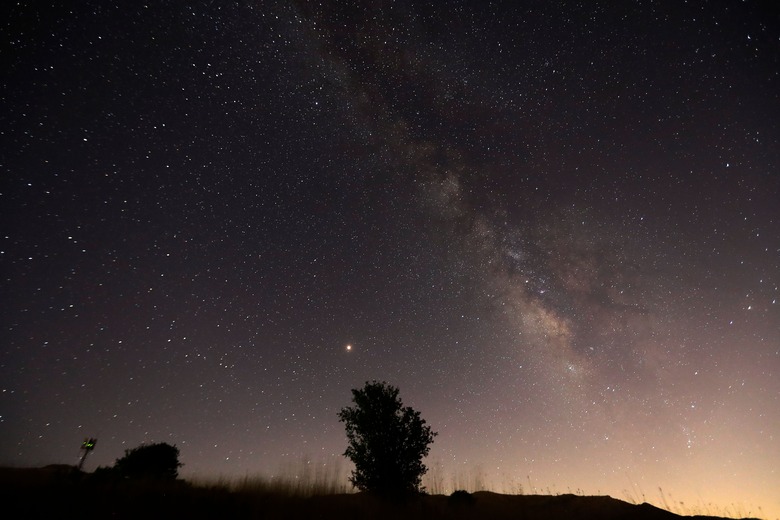Here's What We Should Learn From Dead Alien Civilizations, According To Scientists
Alien life – it's a bit of a stretch, isn't it? And if we can hardly take the idea of living aliens seriously, how would we possibly learn from dead ones?
Well, one Harvard professor thinks we should be paying more attention to the possibility of extinct alien civilizations. The human race has put itself in a precarious position – we've loaded our planet with nuclear weapons, and we've chipped away at Earth's climate for decades. Avi Loeb, Harvard's astronomy department chair, said similar behaviors might have led to the collapse of advanced alien races in other parts of the galaxy.
What Scientists Should Look For
What Scientists Should Look For
According to Loeb, scientists looking for signs of extraterrestrial civilizations should expand their focus beyond just living beings. LiveScience reported that in a May talk at the Humans to Mars Summit in Washington, D.C., Loeb said alien hunters should seek artifacts left behind by past civilizations.
"One possibility is that these civilizations, based on the way we behave, are short-lived," Loeb said at the talk. "They think short-term, and they produce self-inflicted wounds that eventually kill them."
Scientists should look for evidence of burned-up planetary surfaces and remnants of nuclear war, which might in turn teach something to the human race.
"We may learn something in the process," Loeb said. "We may learn to better behave with each other, not to initiate a nuclear war, or to monitor our planet and make sure that it's habitable for as long as we can make it habitable."
Why We Need Aliens (Dead or Alive)
Why We Need Aliens (Dead or Alive)
Loeb called this concept of searching for remnants of dead alien civilizations "space archaeology," according to Futurism. He argued that such a find would represent one of the most significant discoveries in (human) science history, and it could serve as a cautionary tale for humanity, informing us about what might have killed past civilizations and how we may avoid a similar fate.
Finding an actual living civilization, on the other hand, could benefit our own race in different ways.
"Our technology is only a century old, but if another civilization had a billion years to develop space travel, they may teach us how to do it," Loeb said, according to Mysterious Universe.
Loeb didn't become a Harvard department chair by spinning unlikely alien theories – he holds a Ph.D. in plasma physics and has authored nearly 700 research articles, plus four books, according to his Harvard University bio. That said, one of Loeb's recent papers suggests that the interstellar object Oumuamua might actually be an alien spaceship, so the man does boast a flair for the sensational.
Even so, who knows? Maybe finding an extinct alien civilization could teach us exactly what not to do.
Cite This Article
MLA
Swanston, Brenna. "Here's What We Should Learn From Dead Alien Civilizations, According To Scientists" sciencing.com, https://www.sciencing.com/heres-what-we-should-learn-from-dead-alien-civilizations-according-to-scientists-13719354/. 29 May 2019.
APA
Swanston, Brenna. (2019, May 29). Here's What We Should Learn From Dead Alien Civilizations, According To Scientists. sciencing.com. Retrieved from https://www.sciencing.com/heres-what-we-should-learn-from-dead-alien-civilizations-according-to-scientists-13719354/
Chicago
Swanston, Brenna. Here's What We Should Learn From Dead Alien Civilizations, According To Scientists last modified March 24, 2022. https://www.sciencing.com/heres-what-we-should-learn-from-dead-alien-civilizations-according-to-scientists-13719354/
